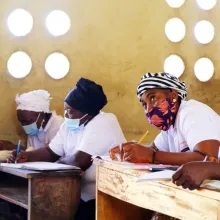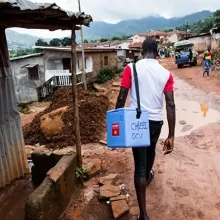Community-Based Programs
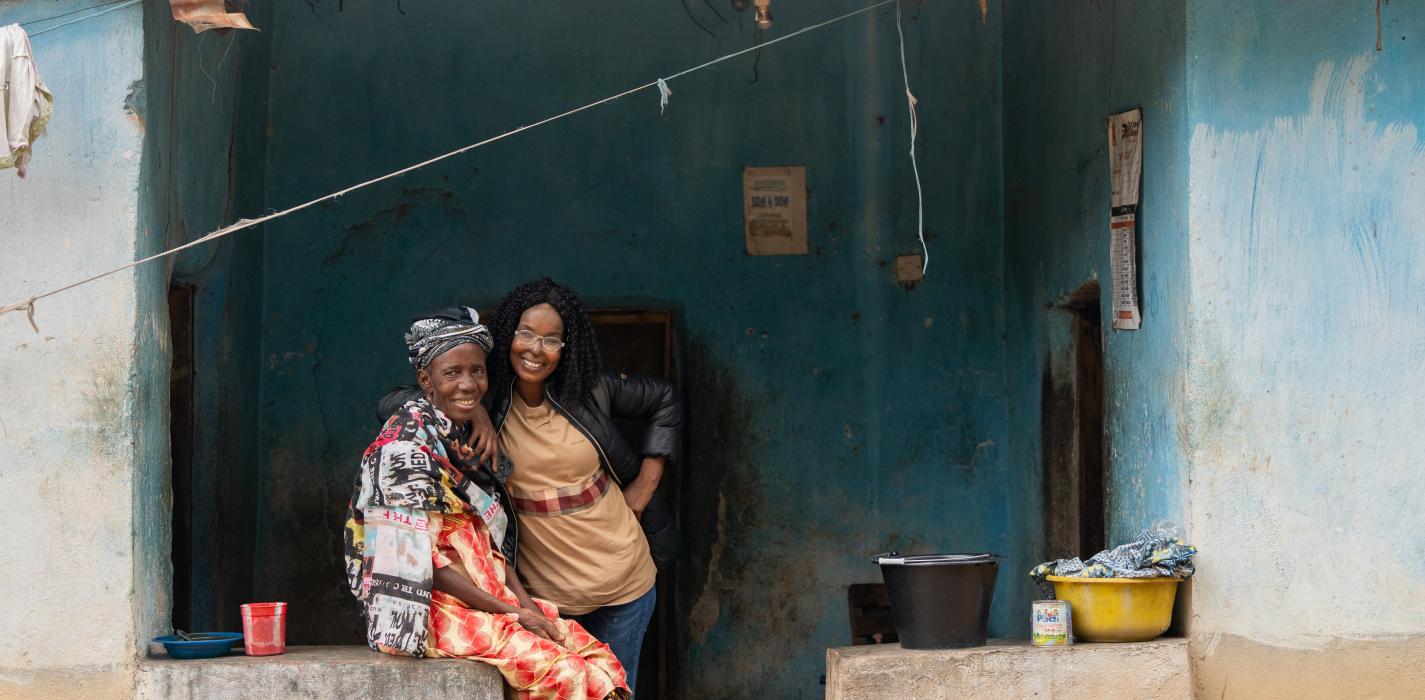
Our community-based programs address barriers and empower individuals to access care and continue follow-up treatment. This multifaceted approach ensures that no one is left behind.
Our Impact
Community-based programs help PIH to better understand patients’ and communities’ needs by providing non-judgmental, in-community support. Meeting patients where they are leads to understanding where they want to be and how that can be achieved. This way PIH can eliminate barriers to health and wellbeing.
-
119Community Health Workers
accompany patients across Kono District to strengthen clinical referral and follow-up care
-
5,344patients
were supported by CHWs in Kono District in 2025
-
2,115children
received nutritious Bennimix meals to combat malnutrition
PIH’s community-based programs go beyond simply finding patients in communities and linking them to care but also focus on providing compassion and guidance when patients receive clinical care and lending understanding and a supportive ear when they struggle to achieve good health outcomes. The community programs understand that a patient is, first and foremost, a person, and that care and support is needed beyond what can be provided in health facilities. This means recognizing that health and wellbeing are strongly impacted by social, economic, cultural, and political circumstances.
Community Health Workers
The dedicated team of 119 PIH-SL community health workers (CHWs) plays a vital role in providing compassionate support and guidance to patients striving for optimal health outcomes. In Kono District, these CHWs serve over 5,300 patients affected by tuberculosis (TB), HIV, or co-infections, ensuring they receive regular home visits, assistance with medication adherence, and psychosocial care. CHWs remind patients of clinical appointments and frequently accompany them to these visits. The mobile app Comm Care helps CHWs to collect data on the go and facilitates quick and accurate data usage. Notably, many CHWs are individuals living with HIV or are former TB patients, which allows them to offer empathetic peer-to-peer support and a deep understanding of the challenges associated with these diseases.
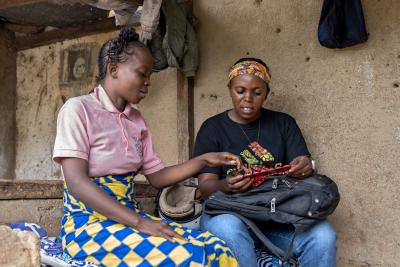
Community health worker Mariama Augustina Yomba (right) conducts a home visit with her patient, Alice.
AbuBakarr Tappiah Sesay / PIH
Acute Needs Program
PIH-SL’s Acute Needs Program (ANP) provides essential short-term cash transfers to support the most vulnerable patients as well as nutritional assistance for children at risk of malnutrition. CHWs and clinicians identify vulnerable patients on a weekly basis, ensuring timely support. The ANP committee, which includes clinical leads from PIH-SL, social workers, and community program representatives, assesses eligibility for financial assistance. In total, 4,332 patients received cash transfers across all PIH-supported facilities and communities in 2025. At the Wellbody Clinic, a canteen was established to produce Bennimix, a nutritious blended meal designed for infants and children. This initiative facilitates the preparation and distribution of meals to children at risk of malnutrition, ensuring they receive vital nutrition to support their growth and health.
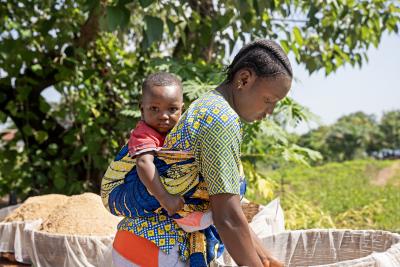
Abibatu Fofanah and her son Ibrahim take part in making Bennimix at Wellbody Clinic. The nutritious blended meal is designed for infants and children to combat malnutrition.
AbuBakarr Tappiah Sesay / PIH
Adult Education
In both Kono and Port Loko District PIH provides adult education opportunities to combat high illiteracy rates in rural areas. The program first started in Port Loko District supporting the country’s approximately 4,000 Ebola survivors. It has now grown to reach all interested community members in both districts and has gone beyond basic literacy and numeracy to include business planning and a financial savings association. To foster a safe and conducive learning environment, four training centers underwent renovations. Every year, high-performing learners graduate from the Accelerated Learning Program, marking a significant milestone in the efforts to empower individuals through education.
